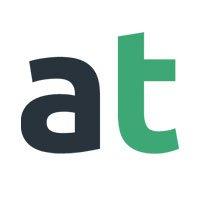Invest in single-family homes
Invest in farmland
Investments
$56,000
The minimum investment on Doorvest is a 25% down payment on a home, averaging $56,250 based on the average home price of $225,000.
Investments
$15,000
The minimum investment on AcreTrader varies by listing, generally starting at $15,000, with some past deals ranging from $3,000 to $100,000. This range is determined by factors such as the size of the offering and the price per acre.
Moderate Risk
3/5
Investing with Doorvest involves risks such as market volatility, economic changes, and property-specific issues. While the platform aims to manage these effectively, outcomes can be uncertain, and investors should carefully consider their risk tolerance and conduct due diligence before investing.
Moderate Risk
3/5
Investing in AcreTrader involves risks like casualty, condemnation, and eminent domain, common to real estate investments.
Minimum Liquidity
1/5
Doorvest allows investors to sell their homes back to the platform, requiring them to connect with a client partner for more information on the process.
Minimum Liquidity
1/5
AcreTrader investments are considered illiquid, meaning investors should be prepared to hold their investments for the specified duration. While it may be possible to sell shares in a private transaction after this period, there is no established market for them, making resale uncertain.
Receive new reviews from Fintorial
High Return
18 %
Doorvest reports an average annual investment return of 18%, accounting for rental income, property appreciation, and mortgage leveraging.
High Return
9.4-30.3 %
The returns from investing in AcreTrader vary, with historical examples showing realized internal rates of return (IRR) ranging from 9.4% to 30.3% over holding periods between 1.7 and 4.2 years. These variations highlight the potential for both moderate and significant returns, depending on the specific investment and market conditions.
Long-term Investment
5-30 years
Doorvest focuses on long-term investments in single-family rentals, generally suggesting a commitment of several years to decades, based on real estate appreciation and rental income.
Long-term Investment
3-10 years
AcreTrader investments target hold periods of 3 to 10 years, though this can vary based on market conditions and sale opportunities. Properties may sell earlier or extend beyond the target period, depending on whether favorable buying offers arise or if market conditions dictate a longer hold.
Who can invest
United States
To invest with Doorvest, you need to be in the U.S. or able to sign documents at a U.S. Embassy.
Who can invest
United States
Investing on the AcreTrader platform is limited to accredited investors, as defined by SEC regulations. Non-U.S. citizens can invest if they are legal residents of the United States.
Moderate Volatility
3/5
Real estate assets on Doorvest can experience volatility due to economic shifts, interest rate changes, and local market trends, potentially affecting investment values and posing risks for short-term investors.
Moderate Volatility
3/5
Farmland assets on AcreTrader typically exhibit lower volatility compared to stocks and bonds, offering a more stable investment option due to the steady demand for agricultural products and the land's intrinsic value.
Regulation and audits
TREC Regulated
Doorvest complies with the Texas Real Estate Commission (TREC) consumer protection notice, indicating adherence to state-level real estate transaction standards. It does not provide details on broader financial regulations or audits, focusing more on real estate industry compliance than securities regulation.
Regulation and audits
SEC Regulated
AcreTrader is regulated by the Securities Exchange Act of 1934, SEC rules, FINRA rules, and state laws, reflecting its commitment to transparency and investor protection. As a registered Broker-Dealer, it must adhere to strict financial standards, undergo regular audits, and comply with ethical practices to maintain its standing and ensure the security of its investors' assets.
Insurance
Yes
Doorvest protects rental investments with homeowner's insurance, covering physical structure damage and potentially extending to personal belongings and medical expenses. This coverage is a mortgage lender requirement, safeguarding against various damages, though investors should be aware of any coverage limitations.
Insurance
Yes
AcreTrader does not explicitly mention specific insurance coverage for investments on its platform. Generally, real estate investments, including farmland, are insured against risks like natural disasters and fire to protect investment value.
Payouts
Rental Income
Doorvest offers rental income as returns to investors, bolstered by a Rent Guarantee that includes vacancy and non-payment protection for the first three months, with an option to extend up to 12 months. Additionally, a Renovation Guarantee covers repair costs for the first year of ownership.
Payouts
Dividends
AcreTrader may distribute net cash from annual income to investors after operating expenses, typically once a year in December. These distributions, based on pro rata ownership, are not guaranteed. If distributed, funds go to the investor's AcreTrader wallet or, for SDIRA or IRA accounts, to the custodian.
Withdrawals
To get their money back, Doorvest investors need to sell their property, with the timeline depending on market conditions and the sale process. The process is initiated through Doorvest, and funds are received after the property is sold and the transaction is completed.
Withdrawals
Investors can typically get their money back when the property they've invested in is sold at the end of its expected hold period, which may range from 3 to 10 years.
Extra Fees
Yes
Doorvest employs a fee model, deriving revenue from a portion of the monthly rental income and margins on home sales, always at fair market value.
Extra Fees
Yes
AcreTrader charges investors initial closing costs around 2% of the offering value and an annual 0.75% servicing fee of the land's value for management. The primary revenue comes from a 5% commission on the farm's sale, charged to the seller. There are no “carried interest fees.” Fee structures vary by deal, so reviewing offering documents is recommended for specifics.
Taxes
Tax Form
Doorvest facilitates tax compliance by providing investors with all necessary documentation for tax filing, related to real estate investment income and expenses.
Taxes
Tax Form
AcreTrader aims to provide K-1 tax forms electronically by early March, although delays can occur due to external reporting needs. Tax treatment varies: gains on land sold within a year are taxed at ordinary income rates, while longer holdings are taxed at capital gains rates. Depreciation on buildings or equipment may affect taxes.

